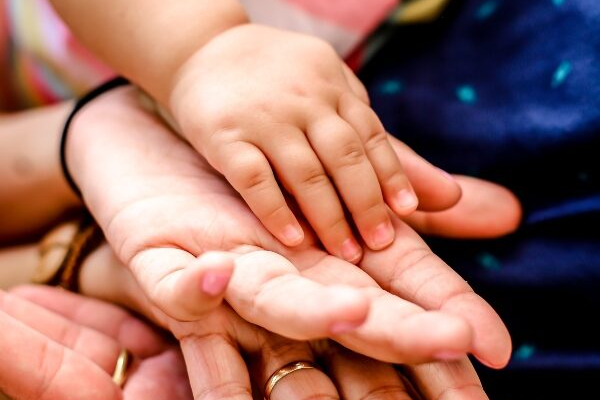Intended parents considering surrogacy often worry about surrogacy agreements not being binding, and fear what might happen if the surrogate does not hand over the baby at birth. Equally many surrogates fear that the intended parents will not assume responsibility for their child. In fact, disputes of this kind between parents and surrogates are very rare, with only a handful of reported cases dealing with UK surrogacy arrangements in which the surrogate has not handed the baby over at birth.
As the leading surrogacy solicitors, we can steer you through the realities of surrogacy disuptes.
How have disputes between surrogates and intended parents been dealt with by the family court?
Although people talk about a surrogate having a ‘right to change her mind’, this is not the reality on the ground. Where there has been a dispute about who should care for a child born through surrogacy, each case has been dealt with on its own facts within the framework of child arrangements orders. The court has considerable flexibility to decide who any child should live with, its paramount consideration being only what is in the child’s best interests.
Cases in which care was given to the intended parents
In Re N (2007) a traditional surrogate became pregnant following home insemination but feigned a miscarriage. The parents later discovered she had given birth to a boy and applied to the court for a residence order (now called a child arrangements order). The Court of Appeal upheld the decision made by a lower court that the child should live with the intended parents rather than the birth mother, on the basis that this was in the child’s best interests and the intended parents were more likely to promote contact with the birth mother than the other way around. The court decided that the fact that the surrogate was married (and therefore neither intended parent was a legal parent) was not material.
In H v S (Surrogacy Agreement) (2015) a single woman deceived her friend and his same-sex partner into conceiving a child with her on the basis that they would be the main carers, but then set out to denigrate them and exclude them from the baby’s life. After a 15 month court battle, the High Court ordered that the little girl should live with the fathers, since they were better able to meet her long term emotional needs and ensure she had a positive relationship with all her parents.
In Re H (2017) a same-sex couple had met a surrogate online and conceived H through IVF with donated eggs in Cyprus. The relationship between the married surrogate and the intended fathers broke down during the pregnancy and the surrogate did not hand the baby over at birth. The High Court ruled that care should be transferred to the fathers (on the basis that H was more likely to thrive in their care), and the surrogate was given limited contact six times per year. The decision was published after upheld by the Court of Appeal which affirmed, referring back to Re N (2007) that the only legal principle was a fact-based assessment of the child’s welfare needs.
Cases in which the surrogate kept the baby
In Re TT (2011) a single traditional surrogate became pregnant following a match made on the internet and home insemination. The parties fell out during the pregnancy and the surrogate did not hand over the child at birth. The intended parents (the biological father and his wife) applied for a residence order (now called a child arrangements order). The court criticised all parties (with none of them found to have told the truth), but decided that it was in the child’s best interests to remain with the surrogate.
In Re Z (2016) a same-sex couple met a surrogate online (who it later transpired was vulnerable and had learning difficulties) and very quickly proceeded with treatment involving egg donation overseas. The relationship between them broke down during the pregnancy and she kept the baby at birth. The High Court ruled that she had bonded with the baby and that it was in his best interests to remain living with her, notwithstanding the lack of biological connection. The decision was later upheld by the Court of Appeal.
What happens if the surrogate hands over the baby but refuses consent to the parental order?
Although the court has the power to reassign day-to-day care, it cannot make a parental order reassigning legal parentage without the agreement of all parties. In Re A and B (2016) a surrogate who had fallen out with her parents refused to give consent to the parental order ‘out of spite’, even though she had no wish to care for the twins she had given birth to. The court made clear that, although it could give the parents parental responsibility and make an order that the children lived with them, it had no power to make a parental order without the surrogate’s consent.
What happens when parents through surrogacy separate?
In a different kind of surrogacy dispute, the family court sometimes deals with disputes between separating or divorcing parents who have had a child through surrogacy.
Parents who separate or divorce after obtaining a parental order should be in precisely the same position as any other separating parents, and the surrogacy background (as well as who is and is not a biological parent) is irrelevant. In the case of G v G (2011) a father through surrogacy (who wished to enhance his own position in a separation) attempted to have a parental order overturned on the basis of procedural irregularities and the fact that his wife had deceived him about her intent to leave him. The court decided that a parental order, once made, was final and permanent.
Parents who separate or divorce without having obtained a parental order are in a much more complex legal position. There have now been several cases (including Re X (2014)) in which disputed family court proceedings have had to be paused to enable parents to first apply for a parental order (sometimes retrospectively after the six month deadline) so the court can properly deal with orders relating to their children. The law on this is still evolving, but without a parental order there will be complex issues around parents’ status, financial responsibility and right to make court applications in the context of a separation, and the extent to which the surrogate needs to be involved.
The UK’s leading surrogacy lawyers
Explore our surrogacy legal services and how we can help.
Related articles

UK surrogacy law: history and reform
The UK’s surrogacy laws were written more than thirty years ago and are woefully out of date and out of step with modern understanding of families. Under the current…

Donor conception at UK fertility clinics
The Human Fertilisation and Embryology Authority regulates fertility treatment with donor eggs, sperm or embryos in the UK. Anyone who collects, stores or uses human gametes…

Known donation arrangements (UK law)
Known donation arrangements cover a wide range of different personal circumstances. In some cases a known egg, sperm or embryo donor is a relative, friend or someone else…
